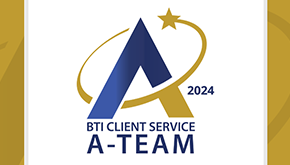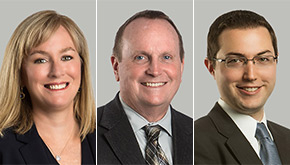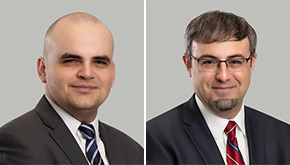Takeaways From Virgin's Wage And Hour Class Action Loss
On Jan. 24, U.S. District Judge John S. Tigar issued a $31 million judgment plus interest against Virgin America Inc. and Alaska Airlines Inc., Virgin's successor in interest, closing the door on the six-year battle over a wage and hour class action brought by flight attendants, premised on violations of California's Labor Code.[1]
A review of the case history, including the parties' arguments and rulings from the U.S. District Court for the Northern District of California and the U.S. Court of Appeals for the Ninth Circuit, provides lessons for companies and employers that they should be mindful in navigating and defending against California's wage and hour laws.
If your employees perform any work in California, beware — the Labor Code may apply to those employees wherever they are located and might cover all work performed.
On its face, the Labor Code applies to any work performed in California, but what about work performed outside the state?
The plaintiffs and the other flight attendant class members only spent approximately 31% of their time working in California, and Virgin argued that the Labor Code did not apply because the flight attendants did not principally or exclusively work in California.
But the district court rejected Virgin's argument, which was affirmed by the Ninth Circuit. Citing California's public policy of protecting its workers, the district court ruled that the Labor Code's reach extended beyond California when the facts showed a strong connection to California, including that the plaintiffs were California residents who received their pay in California and that Virgin was headquartered in California, where the employment-related decisions at issue were made.
If you have employees who conduct business in California, the work performed in the state will be subject to the Labor Code. And whether the Labor Code applies to their work outside of California will depend on a fact-by-fact determination of the strength and degree of the California connections.
What you don't argue may come back later to bite you: At the summary judgment stage as to liability, Virgin did not advance certain arguments substantively attacking the merits of the claims — i.e., whether there were Labor Code violations or the frequency of the violations.
Instead, Virgin argued that the Labor Code did not apply, its application violated the dormant commerce clause and was preempted by federal regulations and statutes, including the Federal Aviation Act and the American Deregulation Act.
After the district court found that Virgin had committed Labor Code violations, the plaintiffs later moved for summary judgment as to damages. The company then tried to advance arguments not previously raised related to liability, but the district court refused to consider the additional arguments, holding that Virgin waived them by not timely raising them in opposition to the plaintiffs' summary judgment motion for liability.
For example, at the district court level, Virgin challenged the claim concerning waiting time penalties for the failure to pay all wages due and owed at the time of separation, claiming there was a good faith dispute as to whether the wages were owed. Because the company should have argued against liability for waiting time penalties in opposition to the plaintiffs' initial summary judgment, it was precluded from making that argument and others during the damages assessment phase.
For wage and hour class action claims, it's all about the records — plaintiffs must demonstrate a uniform policy or practice applicable to the class that violated the Labor Code and is susceptible to class treatment.
In this case, one issue was Virgin's written policy requiring flight attendants to report to work one hour before their scheduled flight departure. The company argued that the plaintiffs' damages model was improper because it assumed that all flight attendants reported to work one hour early and did not account for those who arrived later.
The district court disagreed, determining that the plaintiffs were not required to record the precise hours to award damages.
Because Virgin had an actual written policy as to when the flight attendants were to report to work, the district court held while it was logical to believe that some would not report exactly an hour before, that assumption was insufficient to challenge the plaintiffs' damages model. The district court noted that Virgin did not keep time records of when the employees actually reported to work and held that it was contrary to the purpose of the Labor Code to shift the burden on the employees to produce documentation when it failed to keep it.
Bear in mind, California requires employers to keep payroll records for three years and personnel records for four years. The statute of limitations for certain wage and hour claims, like failure to pay overtime and missed meal periods and rest breaks, is often four years.
Do you have sufficient records to fight against potential wage and hour claims? Do those records show compliant wage and hour policies and practices, compensation for all time worked, meal periods or premium compensation paid for any missed, shortened or interrupted meal periods?
Liability for wage and hour class action claims can include stacked, or double, penalties.
Upon remand and reduction of the damages the district court initially assessed, the district court entered a judgment of approximately $31 million, plus interest. Of the total, approximately $18.7 million was awarded for damages, restitution and statutory penalties under the Labor Code, and the remaining approximately $12.3 million was awarded as civil penalties under California's Private Attorney General Act, or PAGA.
California's PAGA statute allows individuals to stand in the shoes of the state and bring a representative action on behalf of aggrieved employees for violations of the Labor Code. Aggrieved employees can recover civil penalties.
In this case, Virgin argued that the district court should not stack statutory penalties of the Labor Code with the civil penalties under PAGA for the same underlying wage and hour violations.
Although the district court recognized that some district courts require plaintiffs to choose between Labor Code or PAGA penalties, it assessed both. The district court differentiated between the Labor Code statutory penalty that did not require compliance with PAGA and the civil penalty under PAGA, which did.
It further highlighted that the California Supreme Court allowed collateral estoppel to apply from judgments obtained in a PAGA action to obtain additional remedies and penalties beyond the PAGA civil penalties for the same Labor Code violations.
Once a PAGA notice is received, there should be a timely investigation to address any violation to reduce PAGA penalties.
PAGA penalties can be substantial, and courts have the discretion to reduce the penalties substantially, based on various factors, including the amount of the civil penalty compared to the amount of recovery for the underlying Labor Code violations.
Two factors that the courts weigh heavily are whether the company has undertaken remedial efforts to address any violation and the company's ability to pay the PAGA penalty.
Here, the district court reduced the PAGA penalty it assessed against Virgin by 25% due to the uncertainty of the Labor Code's application to the plaintiffs' wage and hour claims.
Virgin had not been on notice of any violations before the plaintiffs' lawsuit. However, the district court declined to reduce it by the 75% that Virgin advanced.
Why? The district court found there was an actual injury to the class members, depriving them of wages and statutorily mandated breaks, resulting in five violations of the Labor Code.
The district court juxtaposed the plaintiffs' injuries against a simple inaccurate wage statement claim. Moreover, Virgin did not show any evidence that the penalty was excessive in relation to its ability to pay it.
In summary, Virgin reminds and teaches us that:
- Work performed in California is subject to the Labor Code;
- Work performed outside of California may also be subject to the Labor Code;
- All defenses should be timely asserted or face waiver of those arguments;
- Records should be accurate and maintained; and
- Compliance efforts after notice of violation can reduce potential PAGA penalties.
The opinions expressed are those of the author(s) and do not necessarily reflect the views of their employer, its clients, or Portfolio Media Inc., or any of its or their respective affiliates. This article is for general information purposes and is not intended to be and should not be taken as legal advice.
[1] Virgin appealed the district court's grant of summary judgment to the plaintiffs in the amount of $77 million to the Ninth Circuit, which affirmed in part and overruled in part, remanding to the district court to reassess the amount awarded. Virgin's petition to the United States Supreme Court was denied.









































